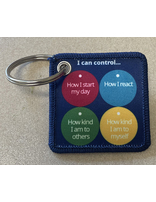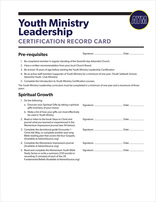 When Emily came to school this morning she was greeted with a barrage of derogatory names. Why? The night before she had gone to a party with a boy one of the name-callers had a crush on.
The name-calling continued for a few weeks, then escalated into physical violence. Emily was kicked and punched until she could take the bullying no more and started to believe death was her only option.
When Emily came to school this morning she was greeted with a barrage of derogatory names. Why? The night before she had gone to a party with a boy one of the name-callers had a crush on.
The name-calling continued for a few weeks, then escalated into physical violence. Emily was kicked and punched until she could take the bullying no more and started to believe death was her only option.
Emily survived, but many kids don’t. “Bullying is increasingly viewed as an important contributor to youth violence, including homicide and suicide. Case studies of the shooting at Colombine High School and other U.S. schools suggested bullying was a factor in many of the incidents,” states a report on bullying.
Bullying can have deadly consequences for perpetrators as well as victims. According to the Bureau of Justice, teenagers say revenge is the strongest motivation for school shootings. Eighty-seven percent said shootings are motivated by a desire to “get back at those who have hurt them.” Eighty-six percent said “other kids picking on them, making fun of them, or bullying them causes teenagers to turn to lethal violence in the schools.”
Forms of Bullying Behavior
Physical bullying, such as slapping, is the behavior we frequently associate with bullying. However, it is only one form of bullying behavior.
- Slapping
- Punching
- Obscene or unwanted sexual gestures or jokes
- Teasing about sexual orientation
- Brushing up or grabbing someone in a sexual way
- Date rape
According to Dr. Ellen W. deLara, Syracuse University School of Social Work, there are several things you can do if you feel you’re being bullied.
- Walk away. This sends the message that the bullying is not having the desired impact on you. If you don’t show any reaction, bullies get tired of trying to get a rise out of you and will move on to the next target after a while.
- Hang out with kids who seem to not get bullied and not be bullies either. See if you can join clubs or other activities where these kids are present and form friendships there.|
- If you are continually bullied, you need to tell a parent, a teacher, and a school administrator and keep telling until someone does something on your behalf.
Being bullied can be lonely and frightening. If you are being bullied and would prefer talking with a counselor over the phone rather than face-to-face, you can call your local hotline 24/7. Check this Web site for a number of a hotline close to you: http/suicidehotlines.com.
______________________________
By Barb Chandler. Reprinted with permission from Listen, November 2006. Copyright © 2007 by GraceNotes. All rights reserved. Use of this material is subject to usage guidelines.

















